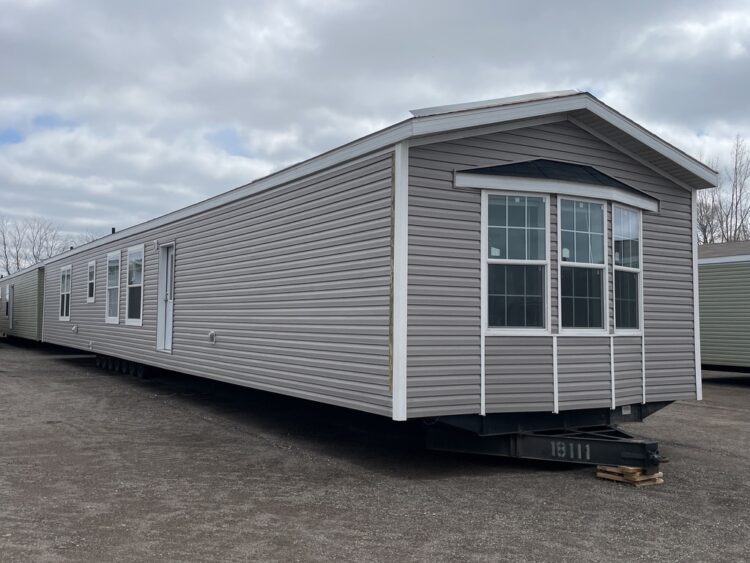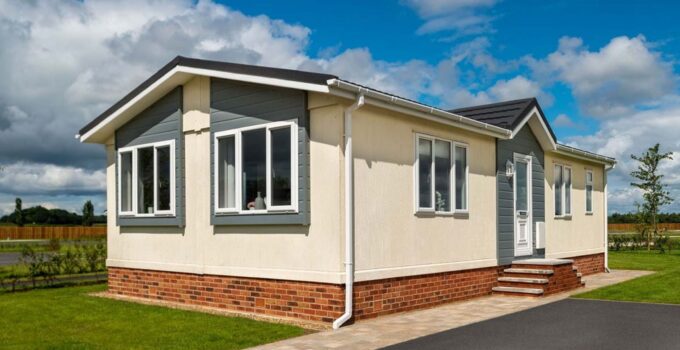Mobile homes, often referred to as manufactured homes, represent a significant sector of the housing market, offering affordable, flexible, and alternative living arrangements for millions of people.
This article explores how the real estate market classifies mobile homes, their attributes, financial aspects, and their impact on housing options, alongside topics like modular home insurance.
Page Contents
Types of Mobile Homes
Mobile homes are available in several types, typically categorized by their size:
- Single-wide homes: These are narrow and long, making them easy to transport. They typically range from 600 to 1,300 square feet.
- Double-wide homes: These consist of two sections that are joined on-site, offering more space, usually between 1,000 and 2,200 square feet.
- Triple-wide or larger homes: These are less common and can include multiple joined units, providing substantial living space that can rival traditional stick-built homes.
Classification in Real Estate

Source: medium.com
The classification of mobile homes in the real estate market hinges on several factors including ownership of the land, the permanence of the foundation, and the home’s adherence to the HUD Code.
Ownership and Land
A key factor in classification is whether the mobile home is placed on land owned by the homeowner or on leased property. This distinction greatly affects the financing, insurance, and legal treatment of mobile homes.
- On Owned Land: Mobile homes permanently affixed to land owned by the homeowner are often classified as real property. This allows for traditional real estate financing methods, such as mortgages.
- On Leased Land: Homes on leased land are typically classified as personal property or chattel, and they are financed through personal property loans with higher interest rates and shorter terms.
Foundation and Permanence

Source: juridiconline.com
The type of foundation on which a mobile home is installed also affects its classification:
- Permanent Foundations: These generally include masonry or a similar durable material and can qualify the home as real estate.
- Non-permanent Foundations: These can include less durable materials and often do not qualify the home for real estate classification.
HUD Code Compliance
Compliance with the HUD Code also plays a critical role. Homes built after 1976 must adhere to this code, which covers a wide range of health, safety, and construction standards. Compliance helps in classifying these homes more favorably in terms of insurance and financing.
Financing Mobile Homes
Financing options for mobile homes vary based on their classification. Real property mobile homes qualify for mortgages while personal property mobile homes are typically subject to chattel loans.
Mortgages
Mortgages offer lower interest rates and longer repayment terms, making them preferable for homebuyers who qualify.
Chattel Loans
These loans are generally for mobile homes that are not classified as real estate. They have higher interest rates and shorter loan terms, reflecting the higher risk perceived by lenders.
Insurance and Taxes
Insurance for mobile homes also depends on whether the home is considered personal property or real estate. Real property homes are covered by standard homeowners’ insurance policies, while personal property homes might only qualify for less comprehensive coverage.
Similarly, taxes on mobile homes can vary. Homes classified as real property are subject to property taxes, which are typically higher but come with the benefits of municipal services and schools.
Market Trends and Demographics

Source: clarksmobilehomes.ca
The demand for mobile homes is influenced by several factors, including affordability, demographic shifts, and economic conditions. They often serve as a critical housing option for low-income families, seniors, and those seeking affordable homeownership.
Challenges and Considerations
Mobile homes face unique challenges such as depreciation, zoning laws, and community stigma. Unlike traditional homes, mobile homes, especially those not on permanent foundations, can depreciate like vehicles. Zoning laws may restrict where they can be placed, which can limit availability and convenience.
In Summary
Mobile homes play a crucial role in the real estate market by providing affordable housing options. Their classification affects everything from financing to insurance and taxes, which in turn impacts their attractiveness to potential buyers. Understanding these classifications can help stakeholders make informed decisions in the housing market.




